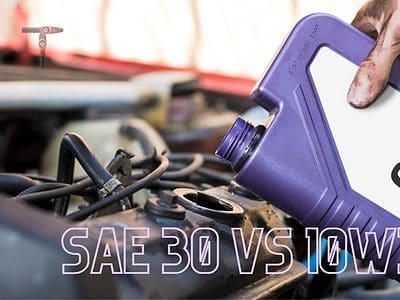
Knowing exactly when to change your car oil is quite challenging, especially with controversial figures being passed around between many car owners and auto mechanics.
Some claim it’s better to do it every 3,000 miles, while others argue that every 6,000 to 7,500 miles is much more acceptable.
Some sources even go further to say that every 10,000 miles is perfect. But which is correct?
This post will explore the different opinions on oil changes and help you find a definitive answer to the question, “how often should I change my car oil?” So, read on and eliminate the confusion from your mind!
Oil Change for a Vehicle in Warranty
If your vehicle is still under warranty, changing your oil every 10,000 to 15,000 miles is advisable. This is because most automakers require it in their warranty agreement.
Moreover, Oil life-monitoring systems are gaining popularity in recent vehicles. They automatically detect when an oil change is needed and inform you via an indicator on the dashboard.
Although the simple initial systems were distant and time-based, contemporary and sophisticated designs analyze the car’s operating conditions to identify when the oil begins to degrade.
Recent car maintenance manuals no longer call for “excessive service” recommendations. This is because the oil-life monitoring system automatically cuts the oil change period when a heavy-duty operation is detected.
Thus, if you have this system in your vehicle, you should stick to the maintenance schedule given in your car’s owner’s-manual.
Another point to remember is that oil changes on newer engines do not need to be done frequently. This is because engine oil lasts longer and dissolves far less quickly in new engines.
Some engines require less than a quart of oil between changes, while others need as much as a quart after merely 600 to 700 miles.
Also, you should note that a new-car warranty does not cover engine wear or damage that results from low oil levels. Hence, it’s vital to maintain proper levels.
Most automakers recommend getting an oil change after 12 months if you don’t drive often, regardless of whether or not your car’s maintenance reminder has gone off.
Oil Change for a Vehicle Out of Warranty
If your vehicle is out of warranty, you should change its oil every 5,000 miles or six months, whichever comes first. You should still consider checking your owner’s manual, as different auto experts have different recommendations.
Regarding mileage in older vehicles, there are two categories of oil-change maintenance to follow, depending on which matches your situation. One is for vehicles driven under “normal” conditions, while the other is for vehicles in “severe service.”
The second category involves driving under extreme circumstances such as in cold, hot, or sandy environments, short distances (almost 5 miles), or towing a trailer or heavier loads. If your vehicle falls in this category, you may need to change your car oil more often.
However, if you drive under normal conditions, you shouldn’t waste money on oil change services your car doesn’t need.
Recommended Change Intervals: Myth vs. Fact
There are various myths and facts regarding oil change intervals for cars. So, it’s crucial that you know which is which difference between the two to make a well-informed decision. Let’s review them one after the other:
Every 1,000 Miles
Changing your oil every 1,000 miles or one month, whichever comes first, has no proven benefit to your vehicle. It doesn’t harm the car either, but it doesn’t help, and the only real winners are the auto repair shop.
Every 3,000 Miles
While 3,000 miles or three months is not nearly as wasteful as 1,000 miles, you shouldn’t follow this recommendation either. Contrary to popular belief, you don’t need to change your car oil every 3,000 miles or three months, at least not anymore, as engine oils now last much longer.
Every 5,000 to 7,500 Miles
This is the most recommended change interval for most vehicles out of warranty. However, you should still check your car owner’s manual, as automakers vary in their exact mileage.
Every 10,000 to 15,000 Miles
This is the recommended change interval for most newer vehicles still under warranty. However, as mentioned previously, you still shouldn’t forget the owner’s manual.
Oil Recycling
Anyone who owns a car knows that oil changes are necessary for vehicle maintenance. However, not many know that used oil can be recycled and reused rather than discarded as waste. Recycling used oil assists in conserving resources and protecting the environment.
It takes just one gallon of used oil to make 2.5 quarts of new, reusable motor oil. And this process helps reduce air pollution from harmful toxins being released into the atmosphere when used oils are burned. When recycled correctly, used oils become invaluable resources.
How to Recycle Used Oil?
It’s important to note that recycling used oil should only be done at a certified recycling center. This helps to ensure that the oil is properly processed and reused.
Finding a recycling center is not too difficult these days as you can locate the nearest one to you by visiting the Used Oil Recycling Program of your state.
When taking your used oil to a certified recycling center, be sure to:
- Put it in a clean, dry container with a tight-fitting lid.
- Not use a container that has previously held hazardous materials such as pesticides, paint thinners, or antifreeze.
- Not mix used oil with other fluids such as gasoline, water, or antifreeze. This will make it more difficult to recycle.
- Label the used oil container as “used oil.” This will help the recycling center properly process the oil.
After you have taken your used oil to a certified recycling center, be sure to:
- Wash your hands with soap and water.
- Rinse out the container that held the used oil and recycle it.
Change Your Car Oil Only When You Need To
How often should I change my car oil? Well, now you know it doesn’t need to be an everyday affair like doing the dishes or vacuuming the floors. Car oils are made to last much longer nowadays.
For the best results, stick to the recommended oil and change interval in your car owner’s manual. And always remember to properly recycle your used motor oil to conserve resources and protect the environment.
If your car has long outlived its warranty, having been on the road for ages, you might want to consider getting the best oil for cars with over 200,000 miles on them. It’ll help reduce your engine’s wear and keep it firing for longer.
FAQs
How Often Should a Car’s Oil Be Changed?
The recommended change interval for most vehicles that are out of warranty is every 5,000 to 7,500 miles. However, the recommended interval is every 10,000 to 15,000 miles for those out of warranty. That said, the exact figures may vary depending on the make and model of the car, as well as driving habits.
How Do I Know When to Change My Car’s Oil?
There are many indications that your car’s oil needs to be changed. Common signs include dark or gritty oil on checking the dipstick, burning smell from the engine, and turned-on check engine light.
How Often Should You Change Your Rarely Driven Car’s Synthetic Oil?
If you don’t drive much, you can change your synthetic oil every 12 months. However, you should still check your car owner’s manual because automakers have different recommendations.
What Happens if I Don’t Change My Oil Often Enough?
If you do not change your oil often enough, you will eventually damage your engine. This is because, after a while, the oil in your engine breaks down and can no longer lubricate the engine. This leads to overheating and possible engine failure.
















